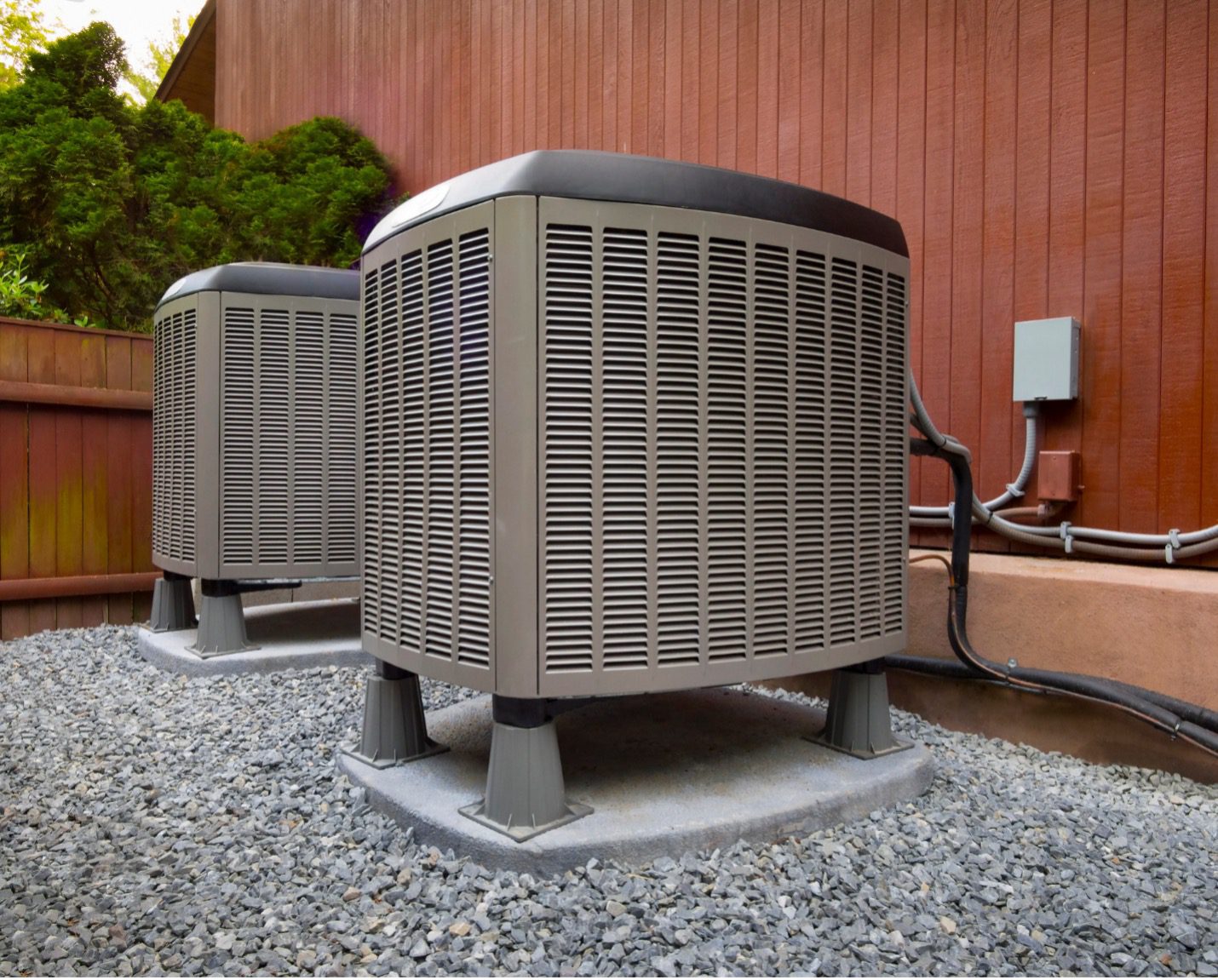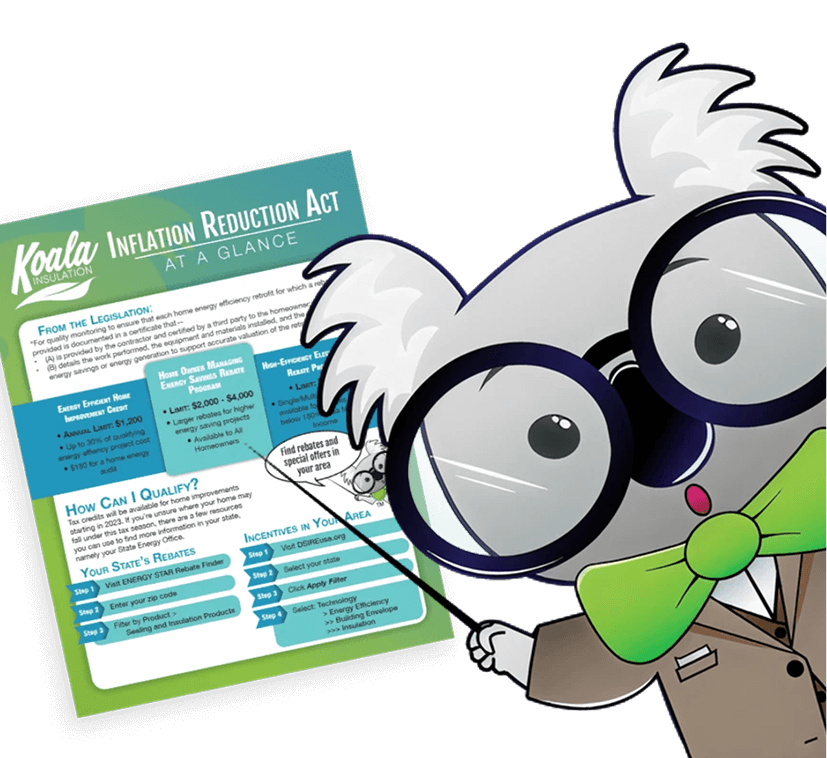How Insulation Works with Your HVAC System to Improve Efficiency

Your HVAC system (Heating, Ventilation, and Air Conditioning) is responsible for keeping your home comfortable year-round, but did you know that insulation plays a critical role in how well your HVAC system performs? Without proper insulation, your heating and cooling system has to work much harder to maintain the desired indoor temperature, leading to higher energy bills, increased wear and tear, and reduced home comfort.
At Koala Insulation of St. Petersburg, we specialize in helping homeowners improve their energy efficiency by installing high-quality insulation that works hand-in-hand with their HVAC system. In this blog, we’ll explore how insulation supports HVAC efficiency and why investing in proper insulation can lead to significant cost savings and improved home comfort.
How Insulation and HVAC Systems Work Together
1. Insulation Reduces Heat Transfer
One of the key functions of insulation is to reduce heat transfer, which occurs when warm air moves toward cooler areas. During the summer, heat tries to infiltrate your home, while in the winter, warm indoor air escapes. This constant transfer forces your HVAC system to work harder to maintain a consistent temperature.
With proper insulation, your home retains its conditioned air longer, reducing the strain on your HVAC system and improving overall energy efficiency.
2. Helps Maintain Consistent Indoor Temperatures
Have you ever noticed that some rooms in your home feel hotter in the summer or colder in the winter? This temperature inconsistency is often a sign of insufficient insulation. Poorly insulated walls, attics, and crawl spaces allow heat to enter or escape more easily, making it difficult for your HVAC system to evenly distribute conditioned air.
By ensuring adequate insulation coverage, you can enjoy stable indoor temperatures throughout your home, reducing the need for constant thermostat adjustments and lowering your energy consumption.
3. Reduces HVAC System Strain
When your home is well-insulated, your HVAC system doesn’t have to work as hard to maintain comfortable temperatures. A system that runs less frequently and for shorter periods will experience:
- Less wear and tear on components
- Fewer repairs and maintenance issues
- A longer lifespan for your HVAC unit
This means you’ll not only save on energy bills but also reduce the likelihood of expensive HVAC replacements.
4. Improves Indoor Air Quality
Insulation doesn’t just help with temperature control—it also plays a role in indoor air quality. Proper insulation can:
- Prevent outside pollutants from entering your home
- Reduce humidity levels, which can lower the risk of mold and mildew growth
- Improve ventilation efficiency by allowing your HVAC system to work more effectively
If you’ve been dealing with excessive dust, allergies, or mold problems, upgrading your insulation may be a game-changer for your indoor air quality.
5. Cuts Down on Energy Costs
Heating and cooling account for nearly 50% of a home’s energy usage. By improving your insulation, you can drastically reduce energy consumption, leading to lower utility bills. According to the U.S. Department of Energy, properly insulating your attic, walls, and floors can save homeowners up to 20% on heating and cooling costs.
6. Supports Energy-Efficient HVAC Upgrades
If you’ve recently upgraded to an energy-efficient HVAC system, ensuring your home is properly insulated is crucial for maximizing its performance. Even the most advanced, high-efficiency HVAC unit won’t reach its full potential if your home leaks conditioned air due to poor insulation.
By sealing gaps and upgrading your insulation, you can fully capitalize on your HVAC system’s efficiency, making it a smart investment in the long run.
Best Insulation Types for HVAC Efficiency
The type of insulation you choose can significantly impact your home’s energy efficiency and HVAC performance. Here are the best options for maximizing HVAC efficiency:
1. Spray Foam Insulation
- Best for: Attics, walls, and crawl spaces
- Benefits:
- Creates an airtight seal that prevents air leakage
- Provides superior thermal resistance (high R-value)
- Helps control moisture and humidity levels
2. Blown-In Fiberglass Insulation
- Best for: Attics and walls
- Benefits:
- Cost-effective and easy to install
- Improves energy efficiency by filling small gaps
- Resistant to mold and moisture damage
3. Radiant Barrier Insulation
- Best for: Hot climates like Florida
- Benefits:
- Reflects heat away from your home, reducing cooling costs
- Works well in combination with other insulation types
- Helps extend the life of your HVAC system by reducing heat load
Signs Your Home Needs Better Insulation
Wondering if your insulation is negatively affecting your HVAC system? Here are a few signs that indicate your home might need an insulation upgrade:
✅ High Energy Bills – If your utility costs are rising despite normal HVAC usage, poor insulation could be to blame.
✅ Uneven Temperatures – If some rooms feel hotter or colder than others, it’s likely due to insufficient insulation.
✅ HVAC Running Constantly – An overworked system could indicate air leaks or poor insulation coverage.
✅ Drafts or Air Leaks – If you feel drafts near windows, doors, or attic spaces, your insulation may need to be replaced or reinforced.
✅ Excessive Humidity or Mold Issues – Poor insulation can lead to moisture buildup, increasing the risk of mold and mildew growth.
Call Koala Insulation of St. Petersburg for a Free Estimate!
Investing in quality insulation is one of the most effective ways to boost your HVAC system’s efficiency, reduce energy costs, and improve overall home comfort. If you suspect your home needs an insulation upgrade, let the experts at Koala Insulation of St. Petersburg help!
📞 Call us today at (727) 416-6702 or visit our website for a free estimate!
Ensure your HVAC system operates at its best with top-tier insulation solutions designed for Florida’s unique climate!
Find Your Location


Get a quote



